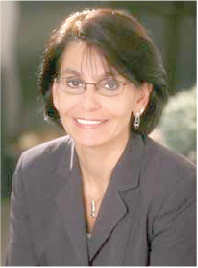By Nancy Burner, ESQ.

There are many steps and layers associated with the administration of an estate. Ultimately, for most estates, the goal is to distribute the assets to the respective beneficiaries named in the decedent’s will or are intestate heirs pursuant to the laws of intestacy. As part of this administration process, and prior to making any final distributions, the beneficiaries of the estate are entitled to receive and review an accounting prepared and provided by the fiduciary for the estate.
One of the fiduciary duties the executor or administrator is tasked with is to marshal the assets of the estate. The administrator reports to the beneficiary the assets of the estate; the income collected during the pendency of the administration; the expenses, debts and claims that were paid on behalf of the estate; and the amount and value of funds that ultimately remain on hand to be distributed to the beneficiaries.
The function of the accounting is to provide a clear and concise review, in proper reportable form, of all of the estate receipts and expenditures of the estate so that the beneficiary fully understands exactly why he or she is receiving a certain sum of money. As discussed above, once the accounting is approved, the ultimate distribution is made in accordance with the terms of the probated will or as provided by the laws of intestacy.
Once provided with the accounting from the fiduciary, the beneficiaries of the estate generally have questions regarding the transactions of the fiduciary. It is important that the fiduciary respond and address any concerns the beneficiary may have regarding the administration of the estate.
After explanation and substantive discussions, most accountings are approved by the beneficiaries and the estate fiduciary can proceed to the next and likely final step of making final distributions.
Conversely, beneficiaries also have the legal right to object to the accounting provided by the fiduciary. Once this occurs, there are provisions in the Surrogate’s Court Procedure Act (SCPA) and other statutes that provide a means by which the beneficiaries can investigate any questions they have about the administration of the estate.
Specifically, SCPA 2211 entitled, “Voluntary account; proceedings thereupon” allows a party to take oral testimony of a fiduciary to examine all of the papers relating to the accounting. These papers include, but are not limited to, bank statements, brokerage statements, deeds, tax returns, financial records, bills and receipts. Following the completion of the SCPA 2211 examination, a decision can then be made by the beneficiaries as to whether to file formal objections to the accounting.
The Surrogate’s Court in New York generally encourages interested parties to resolve their disputes, including any accounting contests, without extensive court intervention, proceedings or a trial as these proceedings can be costly and time consuming.
Accountings are part of the administration of an estate, regardless of whether the decedent died with a will or intestate. Accordingly, whether you are the fiduciary or a beneficiary, it is important to consult with an experienced estate administration attorney to assist and guide you through the accounting process.
Nancy Burner, Esq. practices elder law and estate planning from her East Setauket office.














